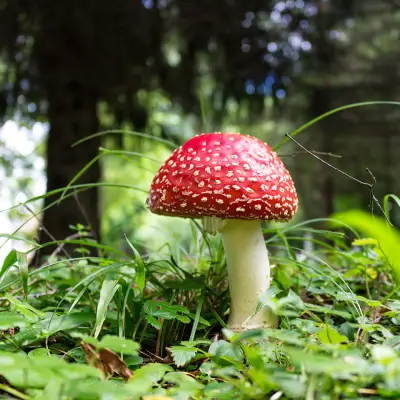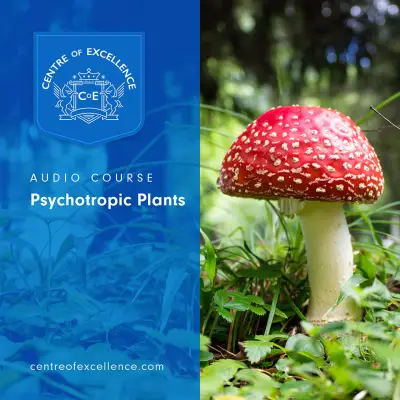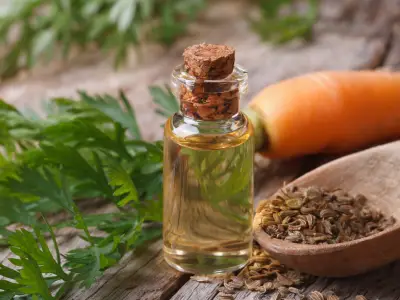If you’re looking for a natural remedy to support your health and well-being, holy basil, also known as tulsi, may be the herb you’re looking for. In this guide, we’ll explore the uses, benefits, and potential side effects of holy basil, shedding light on why this ancient herb remains a staple in natural wellness practices today.
This article is for informational purposes only and is not a substitute for professional medical advice, diagnosis, or treatment. Always consult with your GP or a qualified healthcare professional before starting any new herbal remedies, especially if you are pregnant, breastfeeding, taking medication, or managing a health condition.
Jump to:
- What is Holy Basil?
- The Benefits of Holy Basil
- Types of Holy Basil Supplements
- What is the Best Form of Holy Basil to Take?
- How Much Holy Basil Should You Take, and When?
- What Are the Side Effects of Holy Basil?
- Who Should Avoid Holy Basil?
- Is Holy Basil Safe for Long-Term Use?
- Other Common Questions About Holy Basil
- Study Our Master Herbalist Diploma for £29
Recommended for you!
Best SellersWhat is Holy Basil?
Holy basil, also known as tulsi (Ocimum sanctum), is a fragrant herb native to India. Known in Ayurvedic medicine for its powerful healing properties, it’s considered a sacred plant with powerful healing properties. Holy basil differs from sweet basil commonly used in cooking, as it is primarily used for medicinal purposes. This herb is recognised for its adaptogenic properties, meaning it helps the body adapt to stress and promotes overall well-being.
The Benefits of Holy Basil

Holy basil is packed with beneficial compounds such as eugenol, rosmarinic acid, and ursolic acid, making it a potent natural remedy. Here’s a closer look at its potential benefits:
Reduces Stress and Anxiety
Holy basil is widely known for its calming properties. It may help to reduce stress and anxiety by regulating cortisol levels and promoting a sense of relaxation. Many people use holy basil to manage stress-related conditions like insomnia, fatigue, and even mild depression. Additionally, regular consumption of holy basil tea may aid in balancing mood and enhancing mental clarity.
Supports Respiratory Health
Traditionally, tulsi leaves have been used to treat respiratory issues like colds, coughs, and asthma. The herb contains compounds that help to reduce congestion and soothe the airways, making it a popular choice for natural respiratory support. It may also work as a natural expectorant, helping to clear mucus and improve breathing.
Boosts Immunity
Holy basil is packed with antioxidants that combat free radicals and protect the body from infections. Consuming tulsi tea or tulsi powder regularly can support immune function and reduce the risk of illnesses. It’s also believed to enhance the body’s natural defence mechanisms, making it a valuable addition to daily wellness routines.
Improves Digestive Health
Tulsi tea benefits the digestive system by reducing inflammation and promoting gut health. It can also relieve symptoms of bloating, nausea, and indigestion. Additionally, it may help to stimulate the digestive enzymes, aiding in better nutrient absorption.
Regulates Blood Sugar Levels
Studies suggest that holy basil may help stabilise blood sugar levels, making it beneficial for those managing diabetes or prediabetes. It’s thought to enhance insulin sensitivity and regulate blood glucose. Regular intake may also reduce the risk of sudden blood sugar spikes after meals.
Promotes Heart Health
The herb’s antioxidant content helps reduce oxidative stress, which can lower the risk of heart disease. Holy basil may also help regulate cholesterol levels, preventing plaque buildup in arteries. By promoting cardiovascular function, it can potentially reduce the risk of hypertension and related heart conditions.
Types of Holy Basil Supplements
Holy basil supplements come in a variety of forms, allowing you to choose the best option based on your health goals and daily habits. You’ll find it available as capsules, tinctures, powders, teas, topical creams, and combination formulas. Some forms are better suited for ongoing stress relief and immune support, while others are ideal for quick absorption or targeted skin applications.
What is the Best Form of Holy Basil to Take?
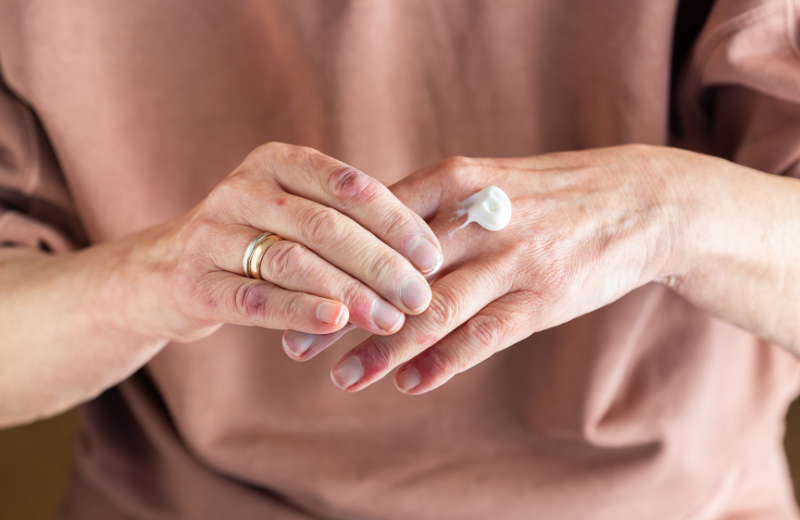
- Capsules: Capsules are a practical and straightforward way to take holy basil. They contain pre-measured doses, making them easy to incorporate into a daily routine. Capsules are an excellent choice for those seeking a simple, no-preparation option.
- Tinctures: Herbal tinctures are concentrated liquid extracts that are typically taken under the tongue or added to water. They provide rapid absorption and are ideal for those looking for a potent, fast-acting form of holy basil. Tinctures allow for flexible dosing and are often favoured by those experienced with herbal remedies.
- Powders: Holy basil powder is a versatile option that can be mixed into smoothies, herbal drinks, or sprinkled over food. It allows for customisable dosing and is popular among those who enjoy incorporating herbs into their diet. Powders can also be used to create homemade masks or poultices for skin care.
- Teas: Holy basil tea offers a calming, mild way to enjoy the herb. It can be consumed daily and is particularly beneficial in the evening to help unwind and relax before sleep.
- Topical Creams: Topical holy basil creams are designed for targeted skin care. They’re often used to reduce inflammation and treat conditions like acne or eczema. Creams deliver antioxidant and anti-inflammatory benefits directly to the skin, making them ideal for those looking to enhance skin health naturally.
- Combination Formulas: Some holy basil products include additional herbs or nutrients like ashwagandha, turmeric, or ginger. These blends are formulated to provide well-rounded support for stress management, immune function, and overall well-being. Combination formulas are a good option for those looking to address multiple health concerns with a single supplement.
How Much Holy Basil Should You Take, and When?
Typical daily dosages of holy basil range from 300 mg to 600 mg, depending on the form, strength, and intended use. Lower amounts are generally used for daily stress support and overall maintenance, while higher doses may be recommended for those dealing with acute stress, anxiety, or inflammation.
If you’re new to holy basil, start with a lower dose and gradually increase it as your body adjusts. Capsules and tinctures provide clear dosing guidelines, while powders and teas allow for more flexibility in adjusting the dosage.
- Morning Use: Many people choose to take holy basil in the morning to support mental clarity, reduce stress, and promote calmness throughout the day.
- Evening Use: Consuming tulsi tea in the evening can help to unwind, relax, and prepare for restful sleep.
- After Meals: Some choose to take holy basil after heavy meals to aid digestion and reduce bloating.
What Are the Side Effects of Holy Basil?
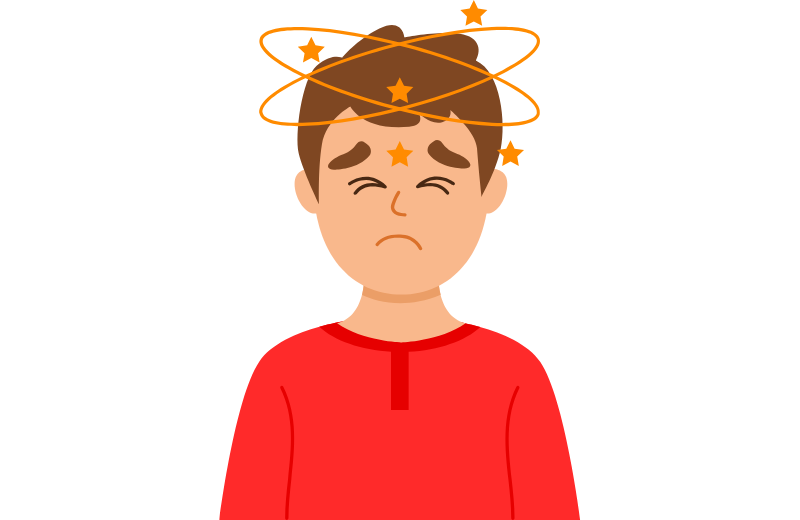
Holy basil is generally well tolerated when taken in recommended amounts, but like any supplement, it can cause side effects in some individuals, particularly if taken in high doses or without proper guidance. Common side effects may include:
- Digestive discomfort, such as nausea, bloating, or diarrhoea.
- Headaches or dizziness, especially in those sensitive to herbal supplements.
- Blood thinning, which may increase the risk of bleeding in some people.
- Hormonal effects, as holy basil may influence hormone levels, potentially affecting menstruation or fertility.
- Allergic reactions, particularly for those with sensitivities to herbs in the mint family.
These side effects are typically mild and temporary. However, it’s important to monitor your response when starting holy basil and adjust the dosage if necessary. Starting with a lower dose and gradually increasing it can help minimise the risk of side effects.
Who Should Avoid Holy Basil?

While holy basil offers numerous health benefits, it’s not suitable for everyone. The following people should exercise caution or avoid using holy basil:
- Pregnant or breastfeeding women, as there is limited safety data for these groups.
- People with bleeding disorders, as holy basil may thin the blood and increase the risk of bleeding.
- People with hormone-sensitive conditions, such as breast or uterine cancer, as holy basil may have hormone-modulating effects.
- People taking blood-thinning medications, such as warfarin or aspirin, as holy basil may increase the risk of bleeding.
- Those with low blood pressure, as holy basil may further lower blood pressure, causing dizziness or fainting.
Children should also avoid holy basil supplements unless specifically recommended by a healthcare provider, as there is limited research on its effects in younger populations.
Is Holy Basil Safe for Long-Term Use?
For most healthy adults, holy basil is considered safe for ongoing use when taken at appropriate dosages. However, as with any supplement, long-term use should be approached with caution.
Some herbalists recommend using holy basil in cycles, such as during periods of high stress or after illness, rather than continuously year-round. This cyclical approach allows the body to maintain sensitivity to the herb’s effects and reduces the risk of potential side effects.
Consulting with a healthcare provider can provide personalised guidance on the safest approach to using holy basil long-term, particularly for those with underlying health conditions or those taking medications.
Recommended for you!
Best SellersOther Common Questions About Holy Basil
What is the Myth of Holy Basil?
In Hindu mythology, holy basil is believed to be the earthly manifestation of the goddess Tulsi. It is said that Tulsi was a devout follower of Lord Vishnu and was transformed into a sacred plant to be worshipped forever. The plant is often found in Hindu households and temples as a symbol of protection and devotion.
Does Holy Basil Help with Weight Loss?
Holy basil may support weight loss by reducing stress-related cravings and promoting metabolic function. Consuming tulsi tea regularly can aid digestion and support fat metabolism. Additionally, its adaptogenic properties can help balance cortisol levels, reducing the likelihood of stress-induced overeating.
Can Holy Basil Cause Heart Palpitations?
While rare, high doses of holy basil may cause heart palpitations in sensitive individuals. If you experience such symptoms, discontinue use and consult a healthcare provider. Avoid consuming multiple forms of holy basil at once to prevent potential adverse effects.
Should I Take Holy Basil at Night or Morning?
Both times are suitable, depending on the desired effect. Taking holy basil in the morning may provide energy and clarity, while consuming it in the evening can help to unwind and relax.
Can Holy Basil Be Consumed Raw?
Holy basil leaves can be consumed raw. They can be chewed directly, added to salads, or blended into smoothies. Raw holy basil is rich in antioxidants and essential oils, providing a burst of nutrients that can support immune health and digestion.
How Long Does It Take for Holy Basil to Work?
The effects of holy basil may vary depending on the form and dosage. Some people may notice calming effects after consuming tulsi tea within 30 minutes, while others may require consistent use over several weeks to experience the full benefits, particularly for hormonal balance or stress reduction.
What is the Best Way to Use Holy Basil for Anxiety?
For anxiety, the most effective forms of holy basil are tinctures and teas. Tinctures provide rapid absorption and can be taken under the tongue for quick relief, while tulsi tea offers a calming ritual that can soothe the mind and promote relaxation. Regular use is recommended for sustained benefits.
Does Holy Basil Affect Hormones?
Holy basil may influence hormone levels, particularly cortisol, which is associated with stress. It may help to balance hormones naturally, reducing the impact of stress and promoting overall hormonal health. However, those with hormone-sensitive conditions should consult a healthcare provider before using holy basil.
Study Our Master Herbalist Diploma for £29
If you’re interested in learning more about holy basil and other herbal remedies, why not deepen your understanding? Whether you're a beginner or looking to expand your knowledge, Centre of Excellence offers a detailed Master Herbalist Diploma Course, designed for people of all levels.
The course covers everything from herb identification and preparation to building herbal blends for specific emotional and physical needs. Follow the link to access the course for just £29!

